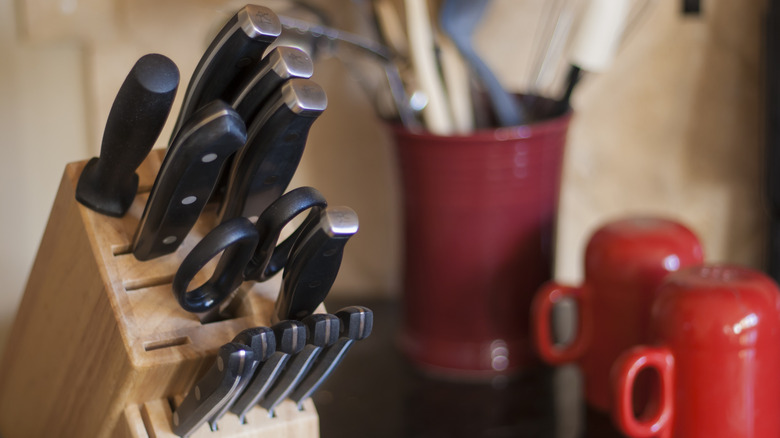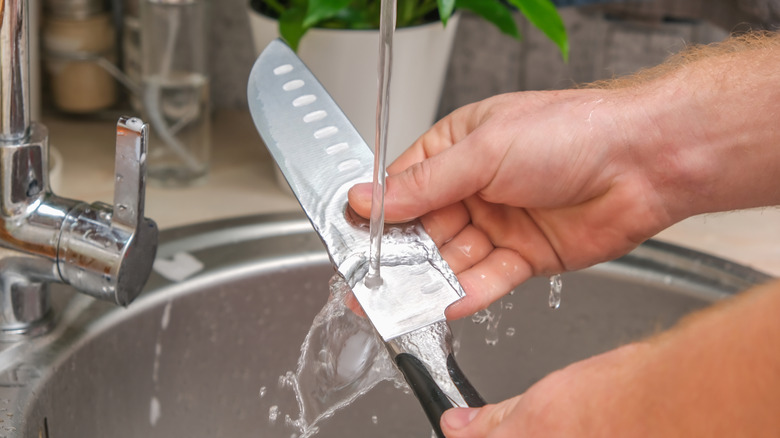The Cleaning Mistake That Is Shortening The Life Of Your Kitchen Knives
If you love to cook, then you'll know just how big of a difference it can make to have sharp knives. Even the densest winter squash or thickest cut of meat is no match for a high-quality, well-maintained blade. Are your kitchen knives looking rusty or feeling dull? One common cleaning mistake could be the culprit: leaving them to soak in your kitchen sink after use.
As knife maker Quintin Middleton told Southern Living magazine, doing this puts knives in a vulnerable spot. "The blade can hit other steel or ceramic items," he explained, which, over time, "dulls the edge, reducing the knife's sharpness and performance." A dull edge is one safety concern that means it's time to replace your knife. Letting your knives soak poses a safety hazard for you and your family if you forget it's in your sink, and someone cuts themselves on it by accident while hand-washing dishes. Not to mention, all that hot, sudsy water in your sink can cause a steel blade to corrode or a wooden handle to crack, which — you guessed it — can also wreck a perfectly good knife. Here's everything else you need to know to keep your kitchen knives in tip-top shape, including the correct way to wash them.
Keep your kitchen knives sharp and rust-free
When it comes to cleaning mistakes that can ruin kitchen knives, keeping them out of the sink is just the beginning. Running them through the dishwasher is also a major no-no. That's doubly so if your blades have wooden handles. While washing knives this way might save you time, it'll cost you money when all that pressure, high heat, and jostling around damages them beyond repair. If your kitchen knives get rusty, you can easily remove rust with an unexpected pantry staple – potatoes. This vegetable contains acidic properties that target rust.
As for how to properly clean your knives to prolong their lifespan? The correct technique is simple. First and foremost: It's best to wash your knives soon after using them. So, again, leaving them in a wet sink for long stretches of time is not ideal. Hold each knife by its handle, and run it under warm water. Using a soapy, non-abrasive sponge, give it a good scrub. Rinse off any excess dish soap, and then immediately hand-dry your knife with a clean cloth or dish towel. It may sound counterintuitive, but drying is the most important part of cleaning your kitchen knives. Religiously cleaning and drying them this way will minimize the amount of time your blades spend submerged in water, reducing the likelihood of them becoming rusty or losing their sharpness. For optimal protection, store your clean knives in a dedicated knife block or on a magnetic strip.

